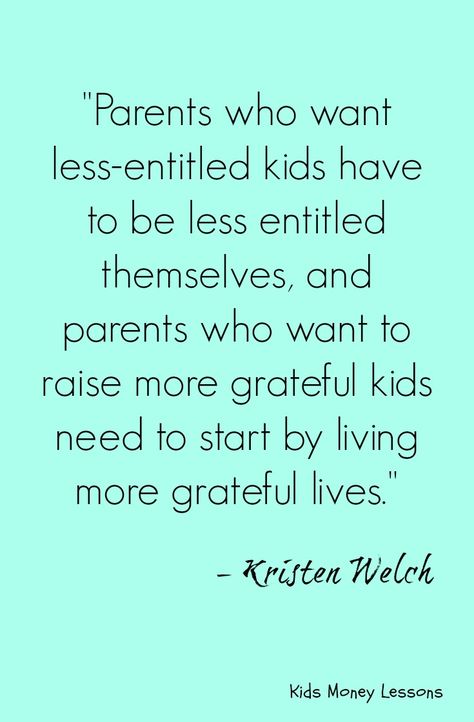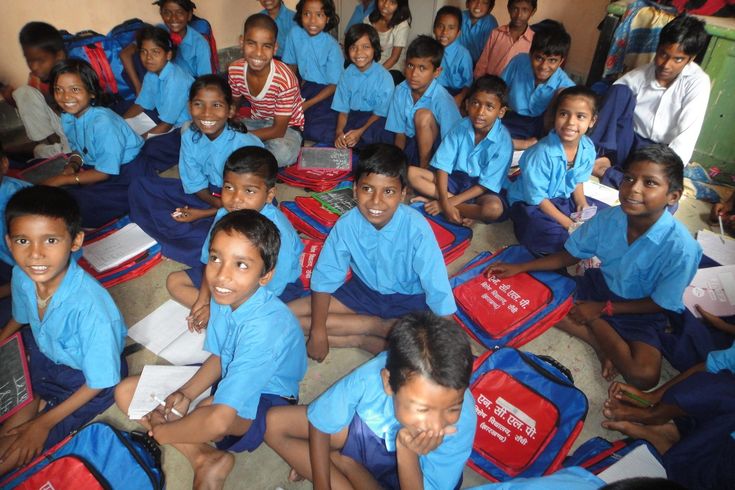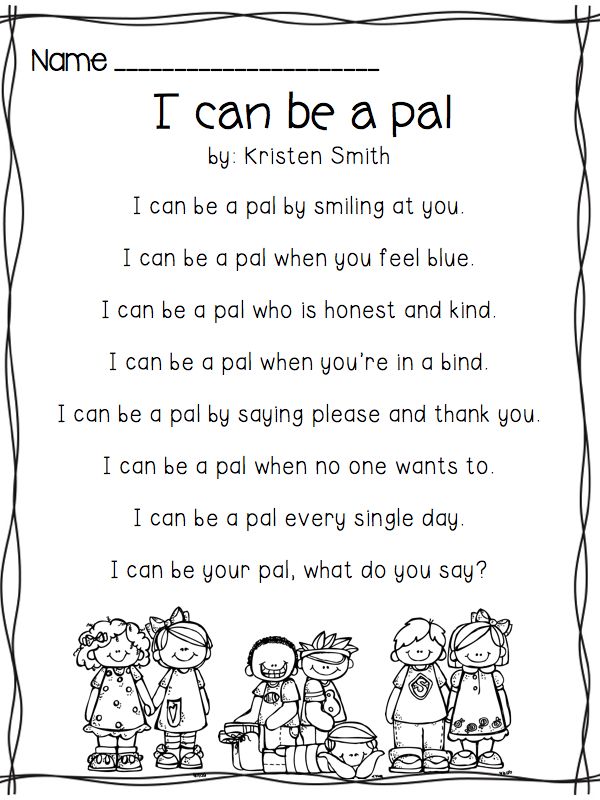How to raise a grateful child in an entitled world
How To Raise Grateful Children In An Entitled World
If you’re wondering how to raise grateful children in this modern consumer world, you’re not alone.
You’ve probably seen examples of it all around you. The phenomenon where certain kids think the universe revolves around them. Some people call it the “Me Epidemic”, and it isn’t cute.
While “me-me-me” kids are hard enough to deal with now, imagine when they grow up to become demanding, high-maintenance adults that aren’t equipped to handle life when things don’t go their way.
None of us wants that for our children.
So, back to our question…how to raise grateful children in a society where there’s an attitude of entitlement? There’s not one simple answer.
Gratitude and appreciation aren’t taught in a single lesson. Rather they are learned, over time, by teaching kids gratitude in daily moments.
The good news is that gratitude for kids can be taught!
All it takes is a few simple changes in parenting to lead our children away from entitlement and towards appreciation.
Practice Gratitude In Your Own Life
First, let’s do a quick reality check.
We can point fingers and try to blame television, social media, or other outside influences, but one of the biggest factors in the spread of the “me epidemic” is us.
Most children are mini versions of their parents. It can be an uncomfortable process, but if you want to know how to raise grateful children – start by doing a reality check of your own life.
It can be an eye-opening experience.
Ask yourself these questions:
Am I spoiling my child?
Do I think my child deserves preferential treatment over other kids?
Do I feel entitled to certain things in my own life?
Be honest with yourself. And it’s okay if you answered yes to one, or all of these questions.
You want to get a baseline of where you’re starting, so you know what to work on.
Getty Images
Learn The Science Of Entitlement
There is a relatively new field of research called behavioral economics that explores the sometimes irrational ways people make decisions and view the world.
Understanding how these thought patterns work can help us raise kinder, less entitled kids.
Here are three important behavioral concepts to understand along with ways you can use them. Keep these in mind while considering how to raise grateful children.
1. The Fundamental Attribution Error:
This is the tendency people have to attribute other people’s actions to their character, but when we do something we blame outside forces.
So if someone cuts you off in traffic, they’re an idiot and a horrible driver.
Whereas if you cut someone off, you’re just late for an important meeting.
How You Can Use This:
Next time your kids are complaining about someone, ask them to think about what that person may have gone through, or how they might be feeling.
“Maybe he took that cookie because he hasn’t eaten all day and he was really hungry.”
Kids stop immediately seeing others as “bad”, and start feeling empathy. This puts them on the path to gratitude.
This puts them on the path to gratitude.
2. Hedonic Adaptation:
This is the way in which humans can become used to almost anything if they’re exposed to it often enough.
So if you always clean your kid’s room, or buy them a milkshake after soccer practice – they will come to expect that will happen all the time.
They’ll feel entitled to it.
How You Can Use This:
Anything you do regularly will become the norm, so really think about where you want to set the bar.
If you want a certain activity to be a special treat, then frame it that way and only do it occasionally.
“We’ll celebrate with a milkshake after your last soccer game of the season” rather than doing it every game and making it seem like a regular activity.
RELATED: Raising Kids That Care: Teaching Children Empathy
3. The Identifiable Victim Effect:
This is the tendency to respond with more empathy to individuals that are suffering rather than a large group.
How You Can Use This:
Being aware of this tendency can help you when considering community service activities for your family.
Kids will have more empathy if you help real people they can identify with.
RELATED: Random Acts Of Kindness Ideas To Do With Your Kids
So instead of giving money to a charity they can’t see, think about adopting a family in need, or providing supplies to local foster children.
This type of one-on-one interaction will be more impactful to your kids.
8 Ways To Raise Grateful Kids
“We tend to forget that happiness doesn’t come as a result of getting something we don’t have, but rather of recognizing and appreciating what we do have.” – Frederick Keonig
1. Expect More From Your Kids
Give your kids a little credit. They are perfectly capable of doing things for themselves and your family.
Research indicates that people are actually more motivated to do things as part of a social transaction than a financial one.
Frame chores as needed contributions that matter to the family. Not a job they have to do to get paid, which implies they can quit at anytime.
RELATED: Why Chores Help Kids More Than You Know
If you hold your kids to a higher standard and expect them to handle their family responsibilities, they will often meet or exceed your expectations.
Your kids feel good, and you’re doing your part to raise helpful human beings.
2. Treat Others Fairly
If you’ve been guilty of treating your child as though they are above other kids, it might be time for a change.
Kids will internalize an entitled attitude and think they deserve preferential treatment all the time.
Be fair to everyone you interact with. Don’t put your child ahead of anyone else.
If you treat people equally, your child will learn other people matter as much as they do.
3. Speak The Language Of Gratitude
It seems so simple, but sometimes we forget.
When your kids do something kind or helpful, say “thank you” to them.
Children learn to appreciate others by being appreciated.
Thank them for clearing the table, or taking out the trash. Also be sure they hear you thanking the people around you.
Thank your partner for making dinner, thank your neighbor for getting your mail.
Kids learn by watching. When they see you being thankful, they will be too.
In addition, try adding an empathy phrase to your thank you’s to show your kids that you recognize they’re being thoughtful and caring.
Say things like “that shows you care” or “that shows how considerate you are” when they do something helpful.
They will begin to make the connection between their actions and gratitude.
4. Call Them Out When They’re Being Entitled
This doesn’t mean you should shame your kids, or give them a lecture on how ungrateful they are.
Gently remind them when they’re taking something for granted.
For example, if they’re complaining about the dinner you just cooked, your response could be something like, “I think you meant to say thank you for taking the time to cook for me”.
Make them stop and think about the effort that goes into something before rolling their eyes or complaining.
RELATED: How To Stop Kids From Whining
Getty Images
5. Hold Your No
Do you ever find yourself saying YES when you want to say NO in order to appease your whining child?
Now is the time to stop giving in to their demands. We often overindulge our kids in order to avoid disappointment, but here’s a newsflash…
Your kids don’t need to get everything that they want.
Just let that sink in for a minute. By saying “no” and sticking to it you’re teaching your kids that life won’t always go their way, and that’s OKAY.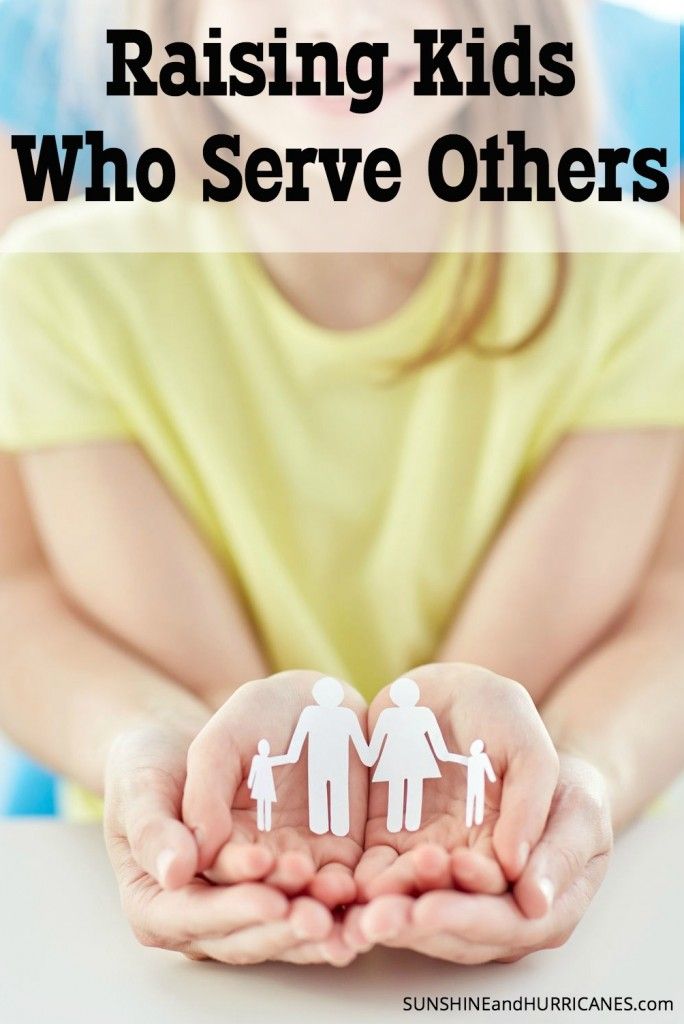
You are establishing healthy boundaries.
6. Teach About The Less Fortunate
Give your kids some perspective. Educate them about how other children live both around the world and in your own area.
Let them see the struggles of others so they appreciate they things they have.
“We need to uncenter our children’s universe and get them to think outside themselves. When they do this, children begin to see it’s not all about them.” –Amy McCready, author of “The Me, Me, Me, Epidemic: A Step-by-Step Guide To Raising Capable, Grateful Kids in an Over-Entitled World”
7. Give Back
Create opportunities for your child to give back to others that are in need.
Establish “do good” days in your house where you actively help other people in your neighborhood.
Have kids donate their toys to a family in need when they outgrow them.
RELATED: Random Acts Of Kindness For Kids: 30 Day Challenge
Get the kids involved in charity work, keeping the “identifiable victim effect” in mind.
Choose ways to give back where your kids can “see” the people they are helping, which makes it more meaningful.
Go to a shelter to serve food, adopt a family for Christmas…seeing the individuals being helped makes gratitude real for kids.
8. Establish A Daily Gratitude Practice
Encourage your kids to find things they are thankful for, every day.
Make gratitude activities a part of your nightly dinnertime or bedtime routine.
Older kids can even keep a gratitude journal if that works for them. You want to make it a regular practice to notice the little things we often take for granted.
RELATED: Amazing Benefits Of Teaching Mindfulness To Children
The research is clear; people who approach life with an attitude of gratitude are happier, less stressed, and more resilient.
Gratitude is the antidote to entitlement. Follow these steps for how to raise grateful children, and watch them grow into caring adults you can be proud of.
SHARE how to raise grateful children with friends on Facebook and Pinterest by clicking the buttons below.
amzn_assoc_placement = "adunit0"; amzn_assoc_search_bar = "false"; amzn_assoc_tracking_id = "beenke02-20"; amzn_assoc_ad_mode = "manual"; amzn_assoc_ad_type = "smart"; amzn_assoc_marketplace = "amazon"; amzn_assoc_region = "US"; amzn_assoc_title = "Our Picks For Gratitude"; amzn_assoc_linkid = "fb30cc63c6acb640a546a54f098bf124"; amzn_assoc_asins = "0399184864,1943648182,1599474808,1544912447";
7 Ways to Raise Grateful Kids in an Entitled World
Reading Time: 8 minutes
In an increasingly entitled world, is it even possible to raise grateful kids? These 7 ways will help you get started!
I’ll never forget the moment my own entitlement dawned on me.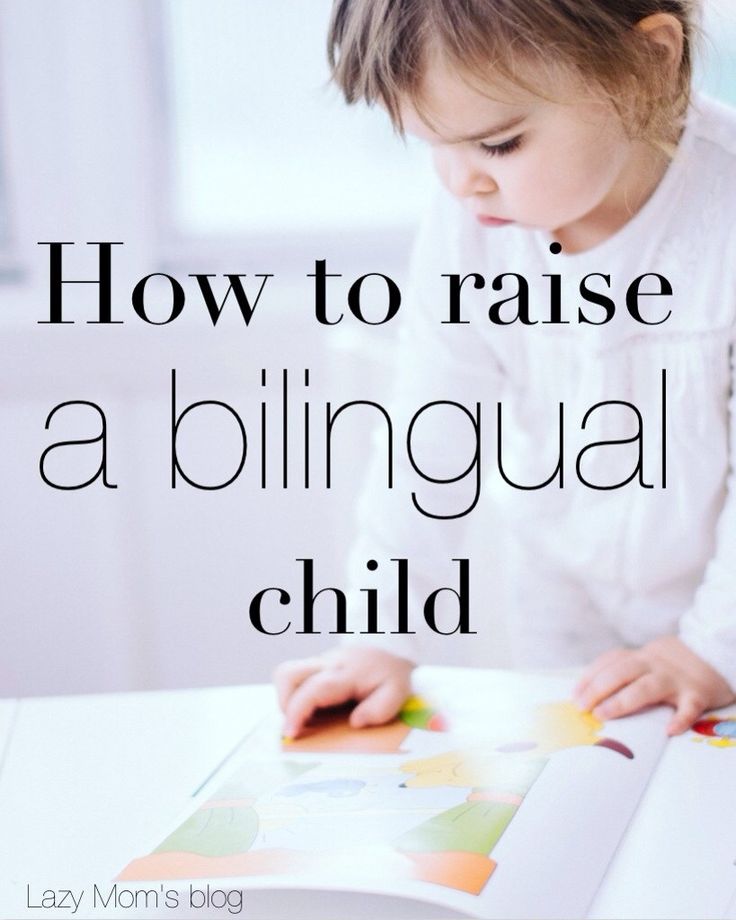
I was a 19-year-old college student spending a month studying in Costa Rica. I had only been out of the country once before–to the United Kingdom when I was 17. But this was my first experience in a country with a language I could only fumble through at the time.
While trying to order a Subway sandwich in a mall, the workers began to laugh at me. I felt my face brighten and my blood pressure mount. I’m sure I grimaced at the workers before I took my sandwich and made my way to a table to eat.
Although I didn’t say it out loud, I’m ashamed by the words that ran through my head that day:
“How dare they! How dare they laugh at me! Don’t they realize I am an American! Don’t they realize I am from the greatest country in the world?!”
Within seconds, the Holy Spirit gave me a nudge: “And why are you any better than they are, Erin? Are you not all made in the image of God?”
Talk about a wake-up call!
I wish I could say that my entitlement ended there, but it didn’t.
More than a decade later, I found myself grumbling under my breath that I was above government aid, that I was an “educated” woman, that I shouldn’t be “on the system,” as I waited in line at the health department to submit my application for food stamps.
Oh how those lean years humbled me!
I’m now convinced that almost every American has struggled with at least a small amount of entitlement–but, sadly, most of us will never recognize it. Truly, we have no idea the blessings we have in this country, as the “American dream” entices us to accumulate more and more.
How will we ever raise grateful kids in an entitled world if we do not even recognize it in ourselves?
Over the weekend, I started reading a book that is rocking my world right now, and it’s resonating with exactly the way my husband and I hope to raise our three girls.
I was so blessed that Tyndale House sent me a pre-release copy of Raising Grateful Kids in an Entitled World, but the good news is that the book is actually released to the public today!
In the beginning of Raising Grateful Kids in an Entitled World, the author, Kristen Welch writes:
“Entitlement didn’t start with my kids.
It began with me. I entitled them because I was entitled.” ~Kristen Welch, Raising Grateful Kids in an Entitled World
That got me thinking: Just what are some ways in which families can seek to end our own entitlement and foster gratitude in our kids?
I came up with 7 Ways to Raise Grateful Kids in an Entitled World:
1. Give them chores.
I will be honest in that I did not grow up with chores. I didn’t even wash a load of laundry or cook any meals until I went away to college.
Although I feel my parents did use other methods to curb entitlement in their children, my husband and I are seeking to place a strong importance on teaching our kids basic household responsibilities from a young age.
We want our children to understand that their parents are not here to meet their every whim and that all members of a family contribute to the household running smoothly.
2.
 Give them plenty of opportunities to share.
Give them plenty of opportunities to share.Teach them to share toys, clothes, and, yes, if led to do so, even rooms!
Contrary to what popular culture may teach us, our children are not entitled to the “right” to have their own room. In our country, many children have more square footage to themselves than entire families have in many parts of the developing world!
I shared a bedroom with my sister from the time she was born when I was 22 months old until I went away to college. I can now look back at how it prepared me to share a bedroom with my husband!
Not only this, but it was a very easy transition to sharing a small dorm room with a stranger, who later became my best friend and roommate all four years of college!
Because our family was living in a 2-bedroom rental house when we added baby girls #2 and #3 to our family, we had no other choice but to put them all in the same room.
We were grateful to find a deal on a used bunk bed via a Facebook garage sale listing, and even when we moved into a 4-bedroom house two and a half years ago, we kept them all together.
Our three girls–ages 7, 5, and 3–know no different than sharing a room with their sisters. We believe it is preparing them for a lifetime of sharing space with others and that sharing a bedroom also helps reinforce sharing in general.
3. Limit their extracurricular activities.
Repeat after me: Your kids do not have to participate in every activity under the sun.
You aren’t a bad parent if your children do not participate in both music and art lessons, a different sport every season, gymnastics and dance, and even character-building clubs.
There is only so much time in the day, and it’s vital that they are spending time with us, the parents, during their “free” time–and not just the hours transporting them to and from their activities!
We seek to be intentional with choosing our daughters’ extracurricular activities, and we look for activities that will fit into our budget.
My husband and I have decided to limit our kids’ activities to one weekly activity. They can do other occasional extracurriculars, such as optional monthly or one-time-events but nothing that will require more than one committed hour per week away from home.
They can do other occasional extracurriculars, such as optional monthly or one-time-events but nothing that will require more than one committed hour per week away from home.
Right now, that translates into our older two girls–ages 5 and 7–taking gymnastics one hour per week.
4. Let them contribute financially.
Whether it be saving up to pay half of a new dollhouse, buy their own bikes, or contribute to their own educational funds, when we give our children the opportunity to work hard for what they desire, they will value it a lot more when they get it.
In Raising Grateful Kids in an Entitled World, Kristen wrote about how her family does not plan on paying for their children’s college education:
“We don’t have plans to foot the bill for four years of college, honey. You will get a college education if you want it and work hard for it. It will happen with a combination of scholarships, work study, local summer school, and your dad and I contributing what we can.
” ~Kristen Welch, Raising Grateful Kids in an Entitled World
My husband and I are in agreement with Kristen.
I should preface this by saying that I am incredibly grateful that my parents worked hard for me and my siblings to attend college debt-free.
But we are living in a very different world than even that of the 90s and early 2000s. College tuition rates have skyrocketed. At the same time, the understanding that a college education is not always necessary to create a viable income continues to rise.
The truth is that it wasn’t too many years ago that we were barely feeding ourselves each month–much less setting aside funds for our girls’ college.
Even after several years of making a much better income, we still often feel we are recovering from how the Recession affected us. We are just now able to save for retirement, and my husband is nearly 40 (and I am 35).
We had nothing extra, and we know that many families are in that situation still.
What we are doing instead
Because we do desire for our daughters to have the opportunity to further their educations, we are doing something to get them started with the costs:
We are asking that grandparents and extended family members limit their gifts to the girls–which do not last long anyway–and, instead, take the money they would spend and give it to us to put in their education accounts.
It is not much–just a few hundred dollars per year–but we hope it will add up and have a much deeper impact than some toys would have right now.
5. Limit gifts.
We only give our girls three gifts at Christmas.
Yes, that means we don’t spend hours opening gifts. It means that they receive less than many of their friends do, but it’s very important to us to be intentional with the gift-giving process.
As I explained in this post, we give our girls a want, a need, and a gift to foster spiritual growth.
We want them to grow up knowing that these are more than enough.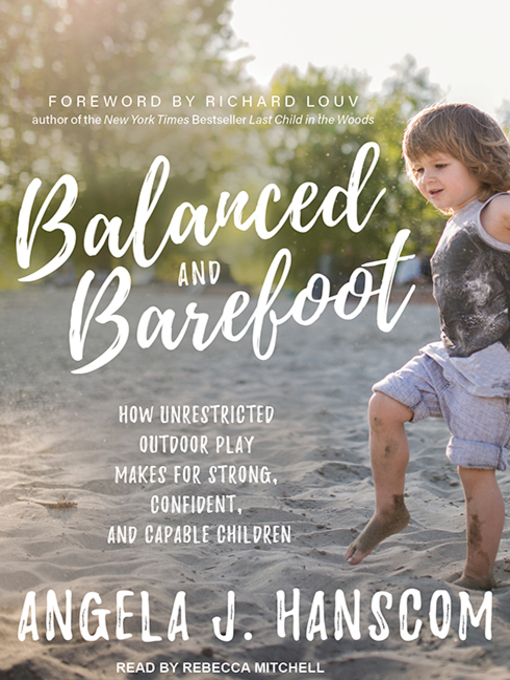
The Welch family has worked hard to combat the mentality that more is needed:
“Entitlement winds its course through my home, and the more I’ve become aware of its subtle infiltration, the more I see and hear it blatantly. This is all I get? There’s nothing else?
“We as parents have to examine the question for ourselves, so we can say to our children with conviction, ‘Yes, that is all. We don’t need more.'” ~Kristen Welch, Raising Grateful Kids in an Entitled World
6. Travel as a family.
In her book, Kristen talks about how a trip to Africa opened her eyes to her own entitlement problem and completely changed her life and worldview:
“It was there in one of the world’s largest and poorest slums that I began to see my life and my own entitlement in light of how the rest of the world lived,” she wrote. “It shook me to the core and flipped a switch inside me that made me stop and reevaluate what was happening.
” ~Kristen Welch, Raising Grateful Kids in an Entitled World
I believe it’s very difficult for Westerners, especially those of us living in the United States, to cultivate a true sense of gratitude and eliminate entitlement without being exposed to how the rest of the world lives.
Sadly, many parents don’t look past Disney World vacations when they are planning their family travels.
We have decided that we are not making a Disney World vacation paramount to our children’s childhood.
Will we take them one day? Maybe. It’s not on our radar at the moment. I am sure we will eventually go, but, to our family, taking our children on trips that will shape their worldview by experiencing life outside of the United States is more of a priority.
This past summer, we took our girls on a 5-week trip to Costa Rica, where they were able to participate in an Operation Christmas Child distribution.
When entitlement flares its ugly head, we remind our girls about what they experienced on that trip.
7. Name your blessings.
Scripture constantly admonishes us to name our blessings. I think it’s important to do this aloud with our children.
Two and a half years ago, our family was able to purchase our home, after several years of living on a low income. I used to sit in the driveway and just stare at the house, praising God for His provision.
I would also say–and continue to say–to the girls: “Look how God has blessed us! He has given us this house! He has provided for all of our needs! God takes care of us!”
These are truths that are simple, yet they are easy for even adults to forget. They need to be reiterated to our children again and again.
Raising Grateful Kids in an Entitled World is available at Amazon and other major bookstores. This book is rocking my world, and I think it will yours, too. Every parent needs to read it!
Thank you, Tyndale House, for gifting me with the book Raising Grateful Kids in an Entitled World.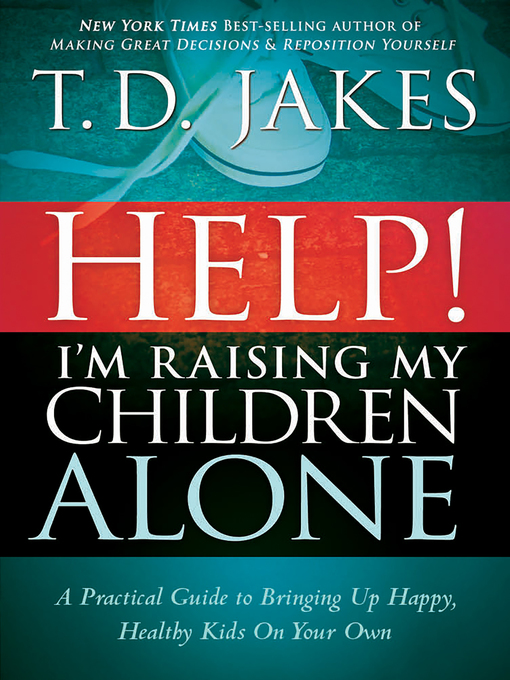 It inspired me to write this post and to continue learning how to raise my kids with a biblical world that honors gratefulness and seeks to abolish entitlement.
It inspired me to write this post and to continue learning how to raise my kids with a biblical world that honors gratefulness and seeks to abolish entitlement.
Seven ways to teach a child to be grateful
Komsomolskaya Pravda
Dom. FamilyMom and babyMom and baby: Education and development
Anna GERASIMENKO
August 22, 2021 23:57
I try, I do everything for him, I buy everything for him, and he won’t even say thank you!” Moms and dads often complain. And children simply do not always know how to appreciate what they do for them, and if they do, they do not know how to express their gratitude. You can help them learn to be grateful by following these 7 tips:
1. Describe this feeling
The child doesn't know what it's like to be grateful. The task of parents is to teach the child to recognize emotions. Tell me how to respond if you want to say "thank you". Catch the moment when the baby can feel it and pay his attention. In addition, the usual rule of "saying thank you" has not been canceled either. Don't expect your child to learn everything the first time. Be patient and keep practicing.
In addition, the usual rule of "saying thank you" has not been canceled either. Don't expect your child to learn everything the first time. Be patient and keep practicing.
2. Explain with an example
Our children do not understand that they are very lucky. That their childhood is filled with toys, gadgets, opportunities, interesting pastimes. Annoyed to say "you don't appreciate your happiness! I didn't have anything at all in my childhood" - it's like saying nothing. The child does not believe in the word. He does not understand how it is when there is NOTHING. But if you and your child collect a bag of toys or buy a pack of notebooks and pencils for children in an orphanage, because they don’t have it, it will be much clearer. Do not scare with scary stories about orphans and beggars, no, just show (using books, films, stories as an example) that not all people have so many opportunities, and many children dream of such a train, or such a doll, or a trip to the sea with parents. That is why we are glad that we have this train! We appreciate it, we are grateful for it.
That is why we are glad that we have this train! We appreciate it, we are grateful for it.
3. Don't buy everything
This is probably one of the most important points. If a child has everything, if he even has no time to dream, if the child cannot answer the question “what do you want for your birthday”, then he “does not have time” to evaluate. He gets everything and is used to taking it for granted. So stop bombarding your child with toys! Show that any thing costs money. And money should be spent wisely and on what is really really needed. How do you know if a child really needs something? He will talk about this thing every day, dream and remember. And if he does, he will feel joy and gratitude! And that's exactly what we were after!
4. Don't forget to say "thank you" yourself
Children do what their parents do. Moreover, children learn to feel what their parents feel. Grandma brought you a pie or apples - thank you from the bottom of your heart, and don't just bring it to the kitchen. The kid himself prepared a soup of sand and mud for you - say "thank you, it's very tasty!" They gave you a seat in the subway - thank you with a smile. The child will "absorb" and do the same.
The kid himself prepared a soup of sand and mud for you - say "thank you, it's very tasty!" They gave you a seat in the subway - thank you with a smile. The child will "absorb" and do the same.
5. Show the value of life
You cooked soup, took your child to kindergarten or school, helped with homework, ironed uniforms, bought warm boots… From our adult point of view, all this is very valuable! And the child does not see anything interesting in this. Show your heirs the side of life that is interesting for them - amusement parks, animals in the zoo, play pirates in the yard, flood the hill in winter, buy a hamster, go to the station and just look at the trains, count the wagons, take the child to your job, tell us about the incredible animals, take with you on a trip! When a child knows that there are so many interesting things in life, he understands how valuable it is. You point to moments to be grateful for, things that make us happy.
6.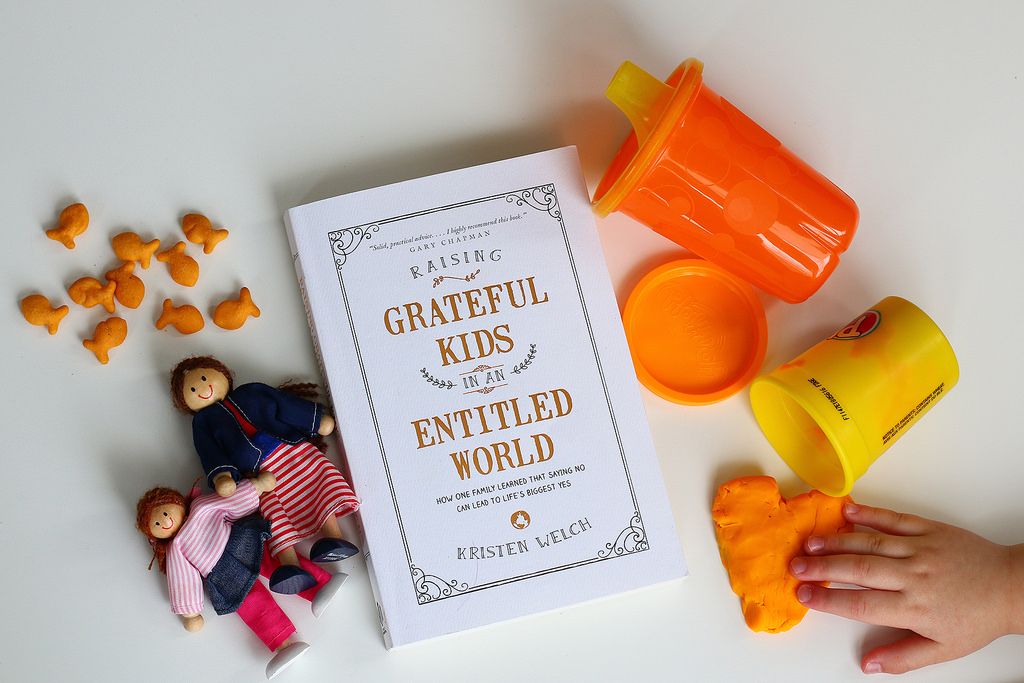 Magic word
Magic word
This "technique" has been working great since the time of our great-grandmothers. Until Vanya says the "magic word", kefir will not appear on his table. Sometimes only the rules in the game work.
7. It's nice to give thanks
Don't force your child to be grateful, don't get annoyed when he doesn't say "thank you" or doesn't notice your efforts. So you will only awaken in him a feeling of guilt, the child will feel bad, because he does not feel gratitude. And for this, he certainly won’t say “thank you” to you, and in the future he will do it “under duress”. Why do you have such false joy? Rather, tell your child that when you feel gratitude, it makes you happy. It's nice to be thankful! Who wants to deprive themselves of the opportunity to be a little happier?
Try it! And thanks for reading our article!
Age category of the site 18+
Online publication (website) registered by Roskomnadzor, certificate El No. FS77-80505 dated March 15, 2021
FS77-80505 dated March 15, 2021
I.O. EDITOR-IN-CHIEF - NOSOVA OLESIA VYACHESLAVOVNA.
I.O. chief editor of the site - Kansky Viktor Fedorovich
Messages and comments from readers of the site are posted without preliminary editing. The editors reserve the right to remove them from the site or edit them if the specified messages and comments are an abuse of freedom mass media or violation of other requirements of the law.
JSC "Publishing House "Komsomolskaya Pravda". TIN: 7714037217 PSRN: 1027739295781 127015, Moscow, Novodmitrovskaya d. 2B, Tel. +7 (495) 777-02-82.
Exclusive rights to materials posted on the website www.kp.ru, in accordance with the legislation of the Russian Federation for the Protection of the Results of Intellectual Activity belong to JSC Publishing House Komsomolskaya Pravda, and do not be used by others in any way form without the written permission of the copyright holder.
Acquisition of copyright and contact with the editor: kp@kp.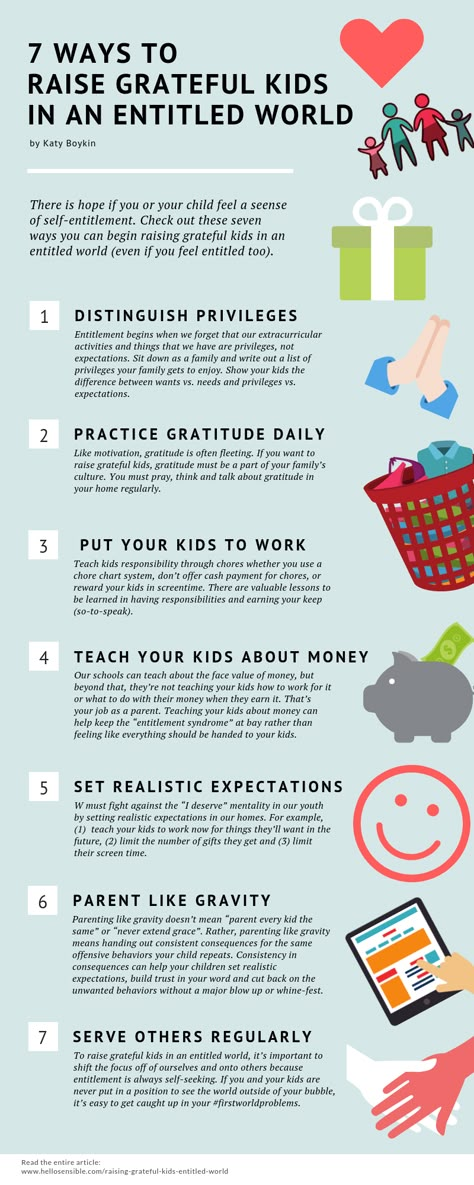 ru
ru
7 tips for parents on how to raise an unspoiled and grateful child
September 1, 2015Tips
not everyone. Children grow up spoiled, capricious, arrogant. In a word, spoiled. In this article, we will advise what to do so that this does not happen to your child.
Share
0We, as responsible parents, want to raise our child as prepared for independent life in this unpredictable world. But let's be honest: what many people mean by "preparing for independent living" is just a good formal education. From an early age, the child is taught mathematics, writing, science and other sciences, and a little later they are sent to a strong school. Of course, all this is useful and will definitely come in handy in adulthood, but is it enough to raise an unspoiled child?
Let's count how many times have you seen smart and educated children who are obsessed with themselves and who are not even interested in the opinions, desires and interests of those closest to them? How many times have you come across intelligent children who do not put their parents in anything (disrespect, rudeness, arrogance, arrogance, lies)? And how many times have you met excellent students who, already in adulthood, are completely dependent on their parents? Such children are often called spoiled. And the truth is that there is no such gene that could "spoil" the child. The only ones who can do this are his parents.
And the truth is that there is no such gene that could "spoil" the child. The only ones who can do this are his parents.
It is worth understanding one thing: a sympathetic, caring, disinterested child does not happen by chance, it is only the merit of his parents. Because it is they who have a key influence on the baby. Your child is a reflection of yourself. Therefore, the best advice for raising an ideal child is to be a good example for him. But if everything was so simple, then there would be no problems with education.
Here are some tips that can help you raise a generous, caring and responsible person. Before you read them, ask yourself what character traits do you want to see in your child in a few years? Let your answers become your cherished goal that you will pursue while raising your child.
1. Love, but set limits
Raising an unspoiled child is always a balancing act between two extremes: love and limits, warmth and strictness, generosity and rejection.
Every morning ask yourself: "If I could teach my son (daughter) just one thing today, what would it be?" Check if the answer is consistent with your goals that you are pursuing in education. In the evening, ask a security question: “What did I teach my child today?”.
2. Stop patronizing!
Good parenting is not about making sure your child is happy. It's more about teaching him how to deal with setbacks, rejections, mistakes, and adversity.
Constantly shielding the child from anything that might cause frustration will not help him master this critical skill. This will not teach him to overcome difficulties, relying only on his own strength.
Stop patronizing your child. Give him the opportunity to learn to manage his life on his own, while mistakes are not so painful.
3. Learn to empathize
Unspoiled children are taught not to always put themselves first. Instead, they know how to take into account the opinions, desires and interests of the people around them (especially those close to them).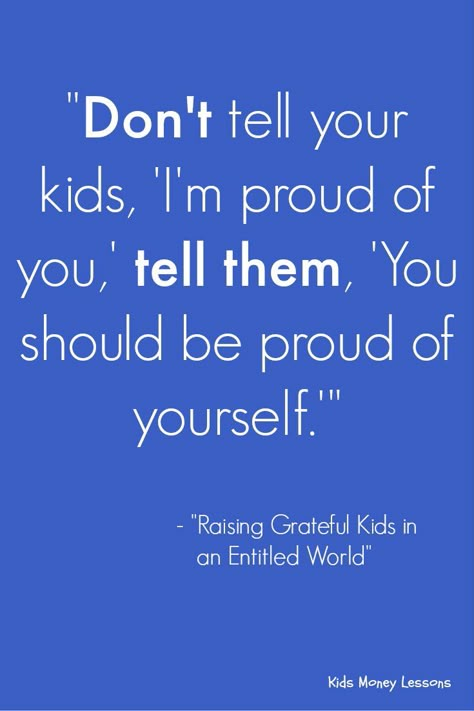
Empathy is an ability that enables a small person to think and look at what is happening from the position of another. This is the foundation for the development of such character traits as respect, restraint, kindness, selflessness.
4. Develop financial responsibility
One of our main tasks as parents is to teach a child to live self-reliantly. This means that we must teach him to manage his finances on his own, and not wait for endless handouts from his parents.
If you feel like a "golden ATM" for your children, then the smartest thing to do is close your wallet.
An uncorrupted child is one who understands the words "no" and "not now."
5. Say no without guilt
Constant satisfaction of a child's desires will not help to teach him that life will not always go according to his plan. Add the word "no" to your vocabulary and don't feel guilty about having to say it. Believe me, in the long run, your children will still be grateful to you for this.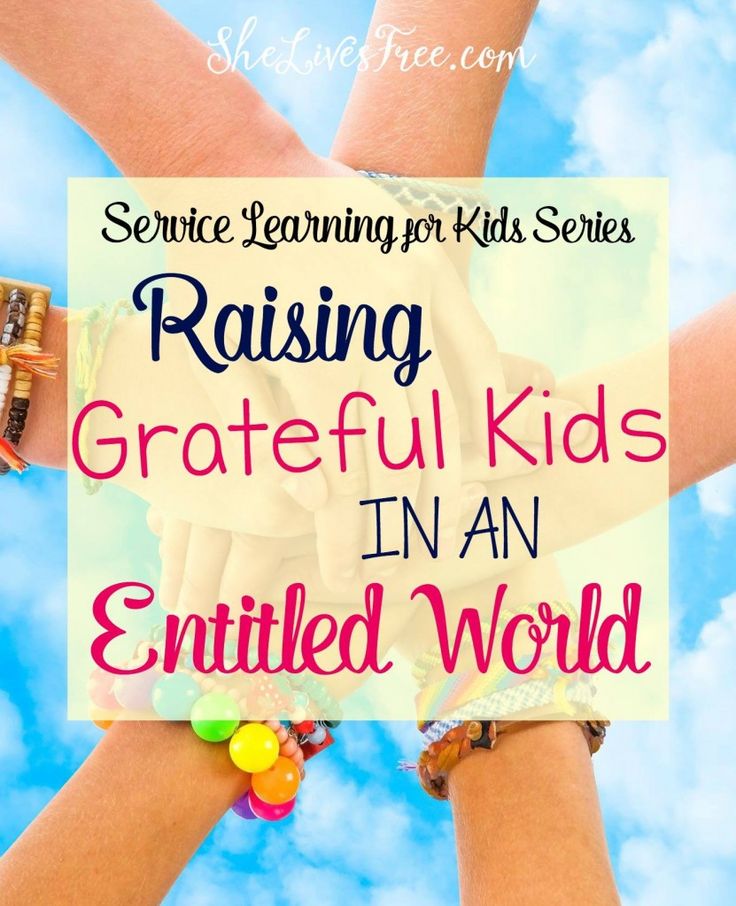
6. Learn to give, not just receive
Give your children the opportunity to understand that they can change lives simply by giving or doing something for other people. Indeed, many of them do not even realize that this is possible.
I came across an article somewhere that said that generous children are not only less selfish and more appreciative of others, but also happier in life.
One of the best ways to keep a child from selfishness is to periodically involve him in volunteer work that does not involve material rewards.
7. Replace "I" with "we"
Children are self-centered. They think that the world revolves only around them. They are more concerned with themselves and their own needs, and they do not pay attention to the opinions and desires of others. And in order not to let them get hung up only on themselves, you need to take them away from the endless “I-I-I” and teach them to think in the “we-we-we” format.
Here are some simple expressions you can use with your child:
- Let's ask Masha what she would like to do?
- Remember, we always share!
- Ask your friend what he would like to play?
- Now it's your brother's turn.
